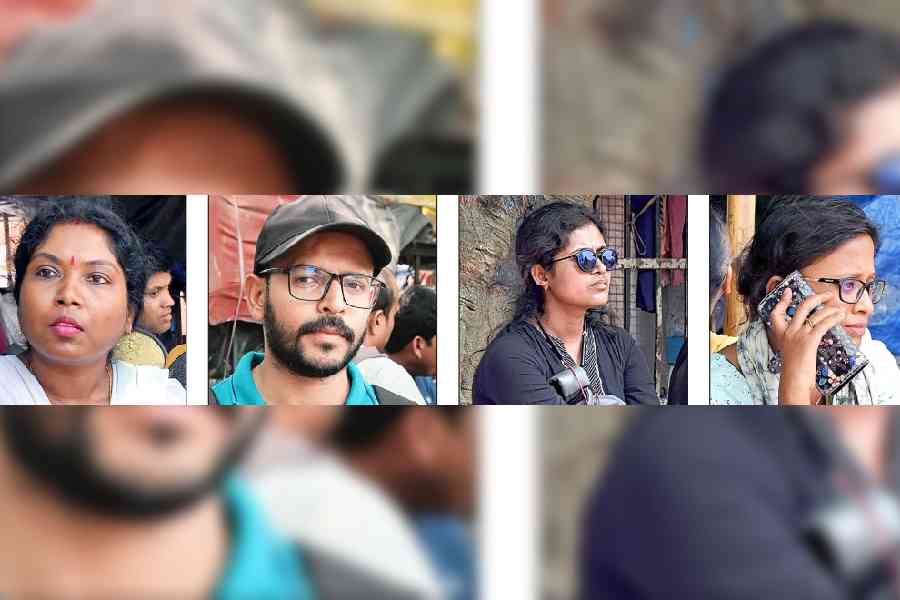Livelihoods lost. Lives damaged beyond repair. Despair, hopelessness and dismay were writ large on the faces of the teachers who lost their jobs following the Supreme Court judgement on Thursday. Metro spoke to some of them:
Sangeeta Sinha, 40
Sangeeta Sinha teaches life science at a school in Diamond Harbour. She had cleared the 2010 SSC before clearing the 2016 SSC.
On Thursday, her life was shattered. She held the state government and the opposition parties responsible for her plight.
“This has now turned into a political blame game. We are suffering because of government apathy. The government has promised to support us. But when we needed their support, neither the ruling party came forward nor did the opposition,” Sinha told Metro after the verdict.
“When we took to the streets last year after the Calcutta High Court scrapped the 2016 panel, no one came to our support,” she said.
She got a job at a school in Hingalganj, in Basirhat subdivision in North 24-Parganas. But she did not take it up because it was too far from her home.
She lives in Budge Budge, on the southwestern fringes of Calcutta and part of South 24-Parganas district. The two are around 110km apart.
She cracked the SSC exam again and got a job closer home in Diamond Harbour. She started teaching there in January 2019.
“Ever since the recruitments came under the scanner, there has not been a single day that I do not spend repenting. Why did I not take up the teaching job at Hingalganj? I stare blankly at the mirror,” said Sinha.
Her mother also “curses herself” because she had also asked her not to travel so far.
Losing a job is devastating. Equally painful is the “stain” that she has to live with.
“I worked hard, with honesty, to crack the exam. I will always be identified as part of the tainted 2016 batch,” she said.
Chinmoy Mondal, 33
Chinmoy Mondal, who teaches English at a school in Halisahar in North 24-Parganas, is baffled by what he called a “contradiction” in the Supreme Court judgement.
“The court has said that only the tainted candidates will have to return their salary with interest. The others do not have to. That means the court treated the two sets differently. Why then did the same court scrap all the appointments?” said Mondal.
“The crime was committed by a few. Why should all the honest candidates be punished,” he asked.
He lived in Bihar and Madhya Pradesh, teaching in private schools, before taking the 2016 SSC. He wanted to come back to his ailing parents. They suffer from cardiac and renal problems.
After clearing the exam, he started teaching at a school in Hatibagan in north Calcutta in 2019. In 2021, he was transferred to the school in Halisahar, closer to home.
“My parents are dependent on me, both physically and financially. The prices of medicines and almost everything else are shooting up, and now, I am without a job. I don’t know how to face them,” said Mondal. His wife is a homemaker.
“Every teacher has a family to look after. The families have also been pushed to the edge of a cliff,” he said.
The school service commission (SSC) submitted to the Supreme Court in mid-February that 5,303 candidates were allegedly appointed illegally as teaching and non-teaching staff in secondary and higher secondary sections of government-aided schools.
Aditi Basu, 37
Aditi Basu is a mathematics teacher at a school in Dakshineswar. She lives near the airport.
After completing her bachelor’s and master’s from Jadavpur University and obtaining a BEd degree, Basu landed an assistant professor’s job at the MCKV Institute of Engineering in Liluah in 2011.
A neurological condition caused partial vision loss in her left eye just before 2016. She was suffering from optic neuritis, an inflammation of the optic nerve.
“I was not scared that my right eye would also be affected. I thought that If I were to lose vision, I would be better off doing a government job. There is much more scope for visually impaired teachers in the government sector,” said Basu.
She cleared the 2016 SSC exam and got the “secured job” she wanted in 2019. Her new salary was significantly lower than what she was drawing from her former employer. “Despite the pay cut, I was happy. I thought I had the security I wanted. Today, that security lies in tatters,” Basu said.
On May 7 last year, when the apex court stayed the high court’s order over the appointments made by the SSC, Basu was “happy and hopeful of a solution”.
“This verdict was unexpected. I don’t know how to go home,” she said.
Her right eye is not yet affected by the neurological problem. “But my life is shattered,” she said.
Basu’s husband is a primary school teacher.
Sucheta Maity, 36
When Calcutta High Court scrapped the recruitments in April last year, Sucheta Maity was down but not out.
“We had hope. We knew the Supreme Court was there. The fate of tens of thousands of deserving teachers cannot be decided by some undeserving ones. But after today’s order, there is nowhere to go,” said Maity, who teaches physical science at a school in Diamond Harbour. She also lives in the interiors of Budge Budge.
Her husband works with a private company. They have a daughter.
“In all likelihood, another test will be held soon. But to solve the problems that you did 10 years ago, to go through the same rigours, is it so easy? This is no child’s play,” she said.
The Supreme Court has asked the Bengal government to initiate a fresh selection process for the teachers and non-teaching staff, which has to be concluded within three months..










